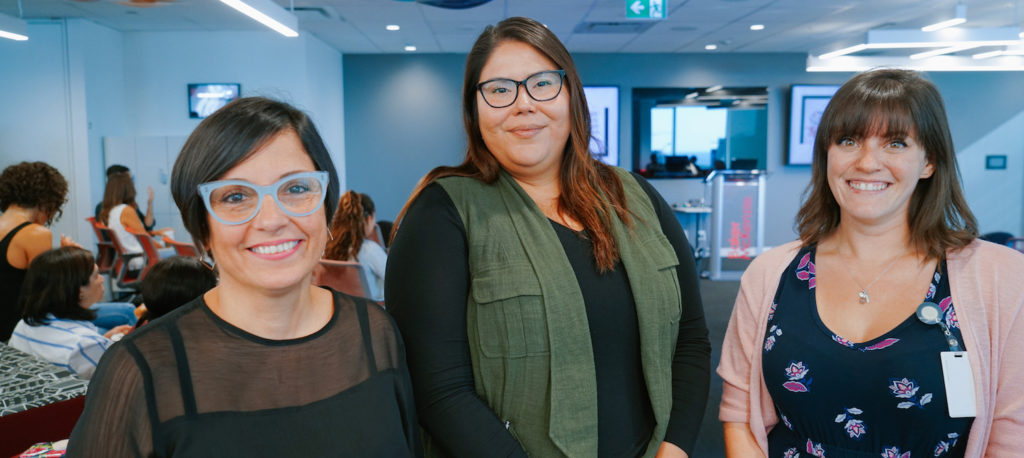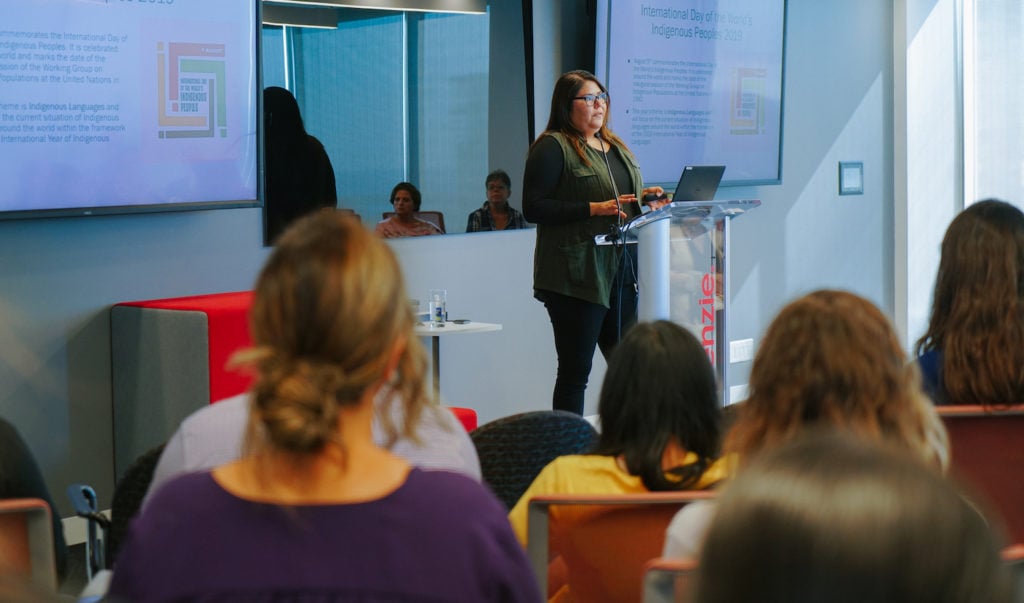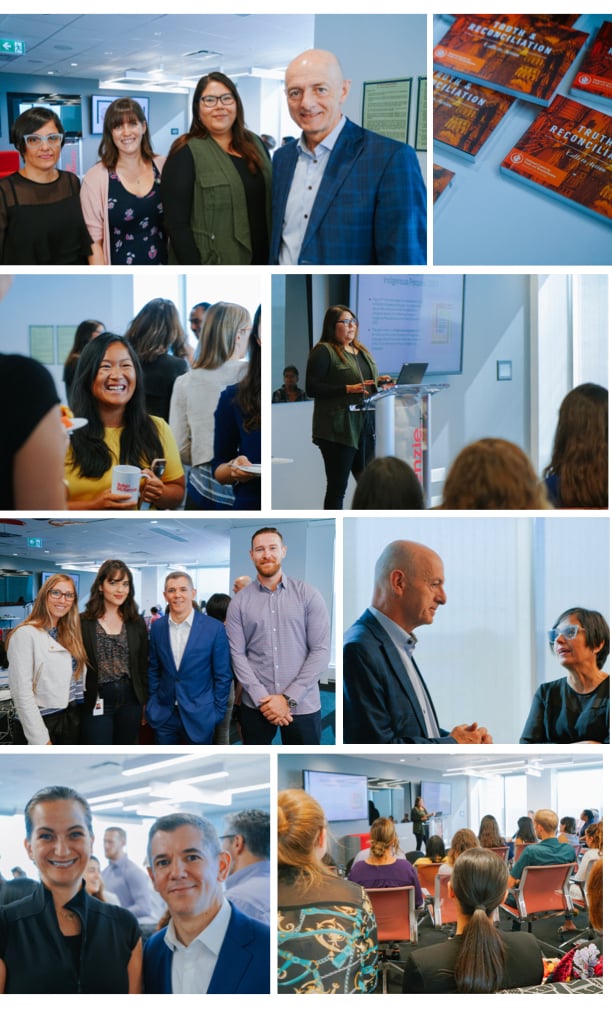World August 9th commemorates the International Day of the World’s Indigenous Peoples. It is celebrated around the world and marks the date of the inaugural session of the Working Group on Indigenous Populations at the United Nations in 1982.

There are an estimated 370 million indigenous people in the world, living across 90 countries. They speak an overwhelming majority of the world’s estimated 7,000 languages and represent 5,000 different cultures.
Indigenous peoples are inheritors and practitioners of unique cultures and ways of relating to people and the environment. They have retained social, cultural, economic and political characteristics that are distinct from those of the dominant societies in which they live. Despite their cultural differences, indigenous peoples from around the world share common problems related to the protection of their rights as distinct peoples.
To observe this important day, the Toronto office was joined by Krystine Abel, MEd. Krystine is Anishinaabe and a member of M’Chigeeng First Nation and is a researcher and evaluator in the Aboriginal Engagement and Outreach Team within the Provincial System Support Program at the Centre for Addiction and Mental Health in Toronto, ON. Krystine has spent several years working on Indigenous health research and evaluation projects in Toronto, and across Ontario.

At a morning gathering in the Whitespace Collab, Krystine shared her history and educated the group on the history of indigenous peoples in Canada and highlighted important measures that need to be taken to protect their rights and maintain their distinct cultures and way of life.

